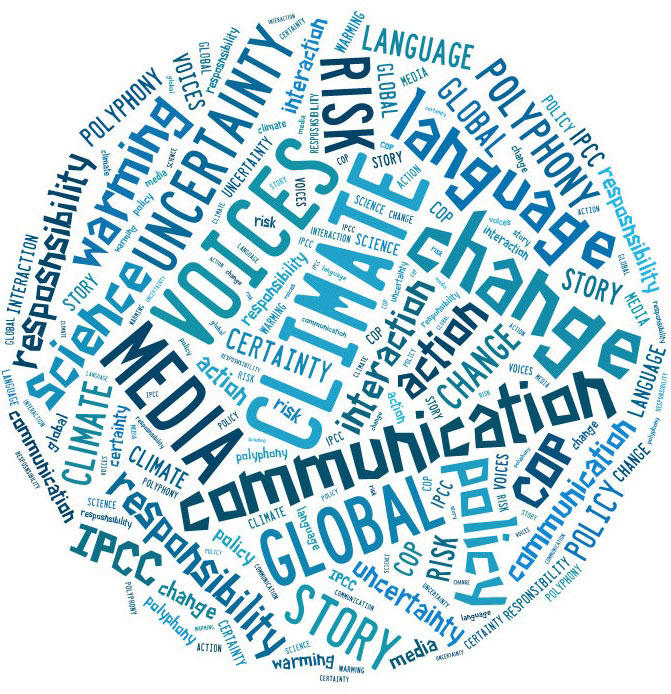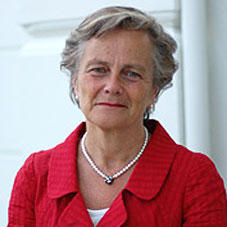How Does Language Use Influence Our Thoughts About Climate Change?
This is the question Professor Kjersti Fløttum and her colleagues have set out to answer by bringing together a number of disciplines in the LINGCLIM project.
Hovedinnhold
January marked the start of the project Linguistic representations of climate change discourse and their individual and collective interpretations (LINGCLIM), which is funded by the Research Council of Norway. During the next three years linguists Kjersti Fløttum at the Department of Foreign Languages and Trine Dahl at the Norwegian School of Economics (NHH) will collaborate with colleagues in other disciplines to answer highly complex questions:
– We hope to find the connection between language use about climate and the individual and collective interpretations of these accounts. In order to do this we need to develop an interdisciplinary methodology, where we work with our colleagues in political science, psychology and the natural sciences. This is based on the knowledge that we as linguists cannot by ourselves find the answers to all the questions which we ask, says Fløttum.
A lack of linguistically based research on climate discourse
The idea for the project came to Kjersti Fløttum in 2009, when she was leader of the Bergen Summer Research School (BSRS):
– That year the topic of the BSRS was climate change. This was a major interdisciplinary initiative, but there were no courses on language use. I had already worked a lot on scientific and political discourse, and I saw a clear potential for similar studies on climate discourse, says Fløttum.
At BSRS 2009 Kjersti Fløttum also met psychologist Gisela Böhm from UiB and climate scientist Helge Drange from UiB and the Bjerknes Centre for Climate Research. They both took interest in Fløttum’s idea about an interdisciplinary project on climate change discourse.
Building an interdisciplinary methodology
Together with political scientist Elisabeth Ivarsflaten at UiB Böhm and Drange have since been active in the development of LINGCLIM, and are now part of the project’s core group. According to Fløttum their respective disciplines will be of great value throughout the project:
– Together with Helge Drange we wish to study how natural scientific knowledge is portrayed in non-scientific contexts. Such collaboration is necessary as knowledge about climate is interpreted and simplified in various ways. In order to account for collective interpretations we will work with Elisabeth Ivarsflaten. Together we will participate in the development of a Citizens’ panel, which will be a major national survey, the first of its kind in Norway. A part of this survey will be on climate issues, and we will contribute by formulating some of the questions, says Fløttum.
The survey will give important data on knowledge and attitudes concerning climate change and political measures along different demographic variables. Such data will constitute valuable input for the psychological experiments to be developed and carried out by Gisela Böhm:
– The survey results will help us formulate relevant questions, in order to determine attitudes among individuals. To what extent will the individual results correspond to the collective ones? The psychological experiments will also uncover the connection between language use and psychological factors, such as attitudes, beliefs and responses, says Fløttum.
Focusing on the young
The project group is particularly interested in studying attitudes among the young:
– One of our aims is to find out whether young people think there are too many doomsday scenarios in climate change discourse, in contrast to more positive depictions, for example on how climate measures can lead to a better society for all. How can you find the balance between focusing on dangers and opportunities? This balance will also be relevant for the political scientific and psychological surveys, says Fløttum.
Public outreach a priority
As the project’s findings may have considerable societal implications, public outreach will constitute a major part of LINGCLIM’s activities:
– In addition to being in contact with the media we hope to establish an interactive web page, where we can be in touch with people outside academia. Another component is our collaboration with students in upper secondary schools, who we will invite to participate at various activities. Throughout the project period we will also work with Klimaforum in Bergen and the Norwegian Climate Foundation, and the third year of the project period we will organise a large open conference where we will present our main findings, says Fløttum.
Climate change in business and political documents
Collaborating with partners within and outside academia will also help to analyse climate change discourse in the private and public sectors:
– We will look at how different economic sectors take climate factors into account in advertising and other company presentations. The energy sector is very interesting in this respect. In addition we will analyse political programmes ahead of this year’s national elections, before contacting politicians to find out whether they will go through with their proposed climate policies, says Fløttum, who emphasises that collaboration with the youth group will remain the top priority.
A perhaps fitting priority, given the considerable long-term stakes of LINGCLIM’s research topic.

